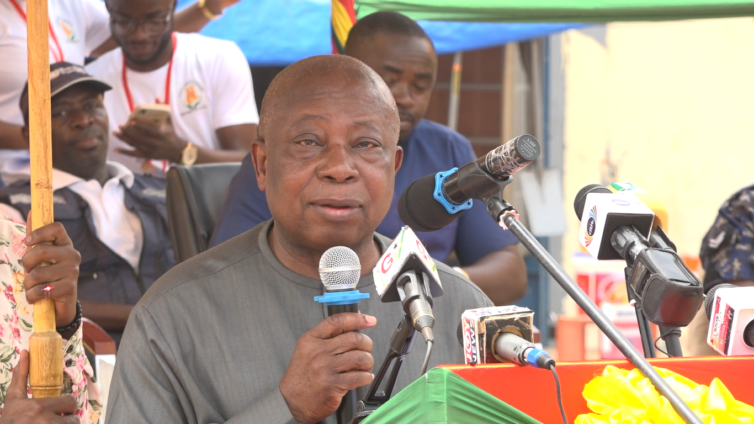Health Minister, Kwaku Agyeman-Manu, says Ghana has made significant progress in the fight against malaria.
According to him, for over a decade, the country has been able to reduce malaria deaths by 96% in 2022 using 2008 as a baseline.
“Malaria related deaths at all ages reduced from 3,889 in the year 2008 to 155 by the end of 2022 which is about a 96% reduction,” he said.
He made these comments at the launch of the National Malaria Elimination Strategic Plan on January 16, 2024.
Mr Agyeman-Manu explained that the country was able to achieve these strides through the implementation of the elimination programme which included the malaria case management guidelines, running laboratory diagnoses of malaria and conducting supervisory visit to public and private health.
“The National Malaria Elimination Programme was established to reduce malaria morbidity and mortality rate by 75% by 2020, using 2012 as a baseline.
"Some of the key interventions and strategies implemented by the elimination programme include distributing long-lasting insecticidal nets nationwide through health facilities, communities and schools; rolling out guidelines for malaria case management, malaria in pregnancy, laboratory diagnoses of malaria and anti-malaria drug policy in all our regions.
"Conducting supervisory visits to public and private health monthly data review, retain data quality audit and monitoring of activities of epidemiological sentinel site,” he added.
Meanwhile, as part of efforts to completely eradicate malaria in Ghana, the government launched the National Malaria Elimination Strategic Plan.
The plan aims at reducing malaria mortality by 90% by the year 2028, and to reduce malaria incident by 50% going into 2028.
Mr Agyeman-Manu expressed his optimism in Ghana’s capacity to eradicate the disease citing the successes of the national malaria programme
Director General of the Ghana Health Service, Dr Patrick Kumah-Aboagye said there was a need to completely eradicate the disease like other countries have done.
“The disease imposes a heavy economic burden on households, the health system and the national economy. Malaria related illness and death leads to loss of productivity, absenteeism from work and school increased health care costs as well as personal costs. This can result in reduced economic growth and development,” he added.
Latest Stories
-
World Cup 2026Q: Lawrence Agyekum makes Black Stars debut in Chad win
45 minutes -
No one should be treated as guilty until proven – Deputy A-G on arrest of Kwabena Adu Boahene
3 hours -
‘We will do everything to stay top of Group I’ – Otto Addo
3 hours -
‘I had a good appetite for dinner’ – Mahama on Black Stars’ 5-0 win
4 hours -
High cost of pain: Why physiotherapy remains a luxury for many Ghanaians
4 hours -
2026 FIFA WCQ: Black Stars thrash Chad 5-0 to go top of Group I
4 hours -
Deloitte, Tony Elumelu Foundation strengthen commitment to empower 250,000 African entrepreneurs by 2030
4 hours -
Celebration wasn’t to mock ‘idol’ Ronaldo – Hojlund
5 hours -
Alisson returns to Liverpool after ‘suspected concussion’
5 hours -
ROBB Foundation calls for greater inclusion on World Down Syndrome Day
5 hours -
Photos: Mahama visits Adum fire scene, assesses damage
5 hours -
Muzic Mensah unveils soul-stirring single, ‘Heart Desire’
6 hours -
Could gum disease affect your performance? Experts weigh in
7 hours -
Savannah Regional Minister commends Saha Global for water expansion initiative
7 hours -
Ningo-Prampram MP secures emergency water relief, GWCL MD to visit for long-term solution
7 hours

